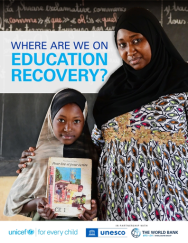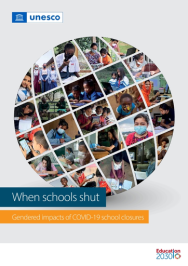
Education: from school closure to recovery
For the past two years, the COVID-19 pandemic has been disrupting education systems around the world, particularly affecting the most vulnerable learners. The pandemic has increased inequalities and exacerbated the pre-existing educational crisis. Disruptions have ranged from no school closures in a handful of countries to more than a year of closures in a number of countries. Lack of connectivity and equipment prevented at least a third of learners from pursuing distance learning.
Today, despite the Omicron variant, schools are open in most countries thanks to the implementation of health protocols and vaccination programmes. However, the consequences in terms of learning, health, well-being and drop-out are considerable. Making education a priority public good is essential to avoid a generational catastrophe and enable a sustainable recovery.


Global Response

Creating a space for policy dialogue on education recovery to leave no learner behind

To ensure continuity of learning and that girls remain in school

Regional Responses

Socio-economic and cultural impacts of COVID-19 on Africa: what responses from UNESCO

Responding to COVID-19: Education in Latin America and the Caribbean

Alternative solutions to school closures in Arab countries to ensure that learning never stops
Publications








